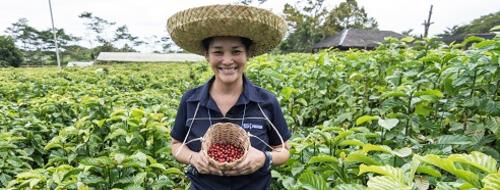These eight universal factors are absence of pressure (internal and external), financial resilience, support for working life, an easy baby, health and wellbeing resources, a supportive environment, shared parenting, and parenting confidence.
The Index shows that the most significant universal factor is pressure - in every country surveyed, parents feel some form of internal and external pressure. For a third of parents this materializes as loneliness, but pressure also shows up as judgement from others (including via social media), the unexpected realities of parenting, and guilt caused by self-criticism.
Based on the views of over 8,000 parents in 16 countries, the Parenting Index is also a unique new way of benchmarking and understanding the experiences of new parents today. The countries ranked in the order of their Index scores out of 100 are: Sweden (75), Chile (58), Germany (56), Mexico (54), USA (52), UK (51), India (51), Poland (50), Romania (49), Spain (48), Saudi Arabia (46), Nigeria (44), Israel (44), Philippines (43), Brazil (40), and China (39). In countries with the highest Index scores, parents generally feel they face fewer challenges and feel more supported, with a greater sense of ease as they navigate the parenting journey.
Commissioned by Nestlé headquartered in Switzerland, the Index is a component of the Nestlé Parenting Initiative as a part of the company’s commitment to support new parents in raising their children. The study was conducted by Kantar, an evidence-based insight and consulting global company.
Findings on the Philippines
Parents in the Philippines (ranked 14th) who were surveyed feel pessimistic in three key factors, including experiencing high levels of pressure and low financial resilience. They also report feeling less satisfied across all the other factors.
In the Philippines, societal and internal pressure comes from traditional, collectivist culture, strong family ties, and the demands of balancing childcare and work to help provide and care for the family. Many Filipino parents hold highly traditional values and parenting attitudes, and they rely heavily on what they remember from their own childhood, or on advice from their parents or older relatives.
Parents in the Philippines are likely to live with extended families. Living in close quarters with older family members ensures the preservation of tradition, family values, respect and obedience to elders, and adherence to habits and practices of the previous generations while getting help in childcare. At the same time, it can also mean being exposed to a great deal of advice and instruction. Being on the receiving end of the opinions and advice of relatives and feeling affected or pressured by this is typical, and 42% of parents report this is what they experience.
As for feelings of low financial resilience, financial constraints are further exacerbated by the economic situation of the country, and most Filipino moms tend to continue working after giving birth in order to help provide for the family. Moms in this situation fear appearing neglectful of their child, as they struggle to manage their time and address the daily demands of juggling work and childcare.
The goal of parents in the Philippines who were surveyed is to have a strong, healthy (not sickly or fussy), happy, sociable, independent, self-reliant, “can-do” child who can learn quickly and figure things out with minimal supervision. They dream of giving their child every advantage – to give them a better, happier, more comfortable life, better than what the parents themselves experienced growing up. For many, financial instability makes it a daily struggle to provide for the family’s basic needs (food, house, etc.), and to give their children what they need in order to reach the big dreams they have of a better life (education, a stable job, a comfortable life).
According to the Index, the Filipino parents surveyed feel comfortable and confident about their parenting decisions. Despite financial and economic difficulties, they are relatively confident about their parenting skills and the upbringing of their children. This could be due to the upholding of traditional family values, characterized by a culture of respect, believing that older family members are always right and sticking with how things have always been done.
Collaboration to support parents
“The Nestlé Parenting Initiative aims to support parents during the first 1,000 days of their child’s life when the foundations for lifelong development, growth and health are created. Under this Initiative, the Parenting Index is a resource not only for us but also for other stakeholders in the public and the private sectors, including policymakers, legislators, the academe, and professionals in various fields. We recognize the importance and the value of working together in enabling parents to raise happy and healthy children,” said Nestlé Philippines Chairman and CEO Kais Marzouki.
He added: “The Parenting Index offers useful inputs towards our parental policies and programs for the thousands of our employees who are parents. And under the Nestlé Parenting Initiative, we look forward to working with like-minded partners to provide meaningful assistance to parents in the country as a long-term priority.”
In support of its employees who are parents, Nestlé Philippines implements a parental support policy which recognizes that each family is unique and supports all forms of family set-ups: biological or adoptive parents, including same-sex partners, single parents, and legal guardians. The policy extends maternity leave from 15 weeks (105 days) as mandated by law to 18 weeks (126 days) of fully paid leave, allowing mothers/primary caregivers to be present in giving their children the best start in life. Further, the policy extends paternity leave from 1 week (7 days) to four weeks (28 days) of paid leave to promote father-child bonding.
The Makati Administrative Office of the company is certified as a Mother-Baby Friendly Workplace. The certification is awarded to an organization that ensures the promotion and practice of breastfeeding by providing healthy and safe working conditions for women through the establishment of a lactation station or facility.
